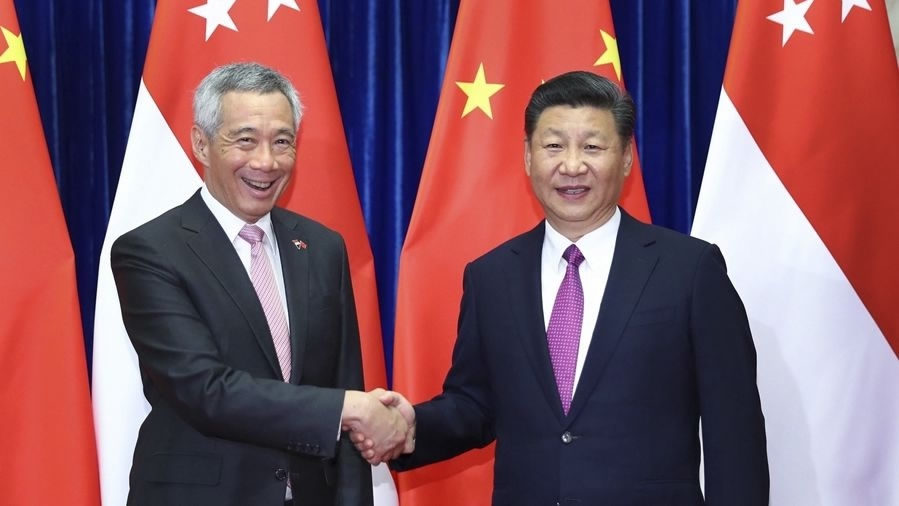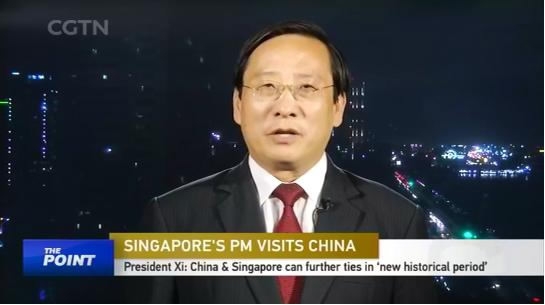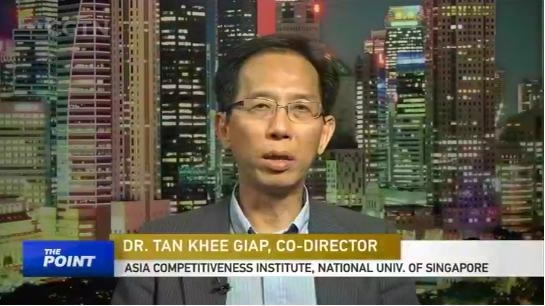
Opinions
14:32, 25-Sep-2017
Can Singapore afford not to ‘take sides’ in foreign policy?
By CGTN’s The Point

"There has been a long standing policy of Singapore to balance relations with major powers. We don’t take side and we hope major powers also do not force Singapore or any country in ASEAN to take side," said Tan Khee Giap, Co-Director of the Asia Competitiveness Institute at the Lee Kuan Yew School of Public Policy in the National University of Singapore on CGTN’s The Point.
Prime Minister of Singapore Lee Hsien Loong has wrapped up his three-day visit to China. The visit has come as a welcome surprise to observers as bilateral ties have been bumpy in recent years. Last June, Singapore backed an international tribunal ruling, siding with the US over China in the South China Sea disputes.

Victor Gao, Director of the China National Association of International Studies. / CGTN Photo
Victor Gao, Director of the China National Association of International Studies. / CGTN Photo
"It will be a recipe for disaster for Singapore to choose one side and against another side in the major power relations," said Victor Gao, Director of the China National Association of International Studies.
He suggested that Prime Minister Lee Hsien Loong learn lessons from the past and stand firm on matters of principle. "Singapore hopefully will be more prudent in navigating through major power relations, especially between China and the United States," he predicted.

Tan Khee Giap, Co-Director of the Asia Competitiveness
Institute in the National University of Singapore. / CGTN Photo
Tan Khee Giap, Co-Director of the Asia Competitiveness Institute in the National University of Singapore. / CGTN Photo
Tan Khee Giap stressed that Singapore should "work with major powers and without losing ability to raise own view." "It’s not about small state or big state, I think it’s about doing the right thing," he concluded.
During Lee Hsien Loong’s visit, Singapore and China signed a memorandum of understanding to help businesses and resolve disputes under the Belt and Road Initiative and discussed cooperation potential in the Kuala Lumpur–Singapore high-speed railway project.

SITEMAP
Copyright © 2018 CGTN. Beijing ICP prepared NO.16065310-3
Copyright © 2018 CGTN. Beijing ICP prepared NO.16065310-3